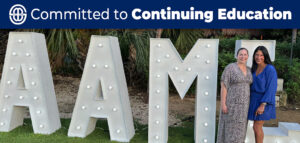If you’re looking for a less adversarial way to settle your divorce, alternative dispute resolution is something to consider. Many people think that a long, public and painful court case is the only way to settle a divorce. Today, though, you don’t have to go to court to settle a divorce. In fact, more couples are looking at alternative dispute resolution (ADR) to end their marriages without the traditional conflict, cost and public trials that others have had to experience.
Is ADR for you? Here are seven reasons to consider it:
Privacy – An ADR proceeding allows you to maintain your personal privacy. In contrast, a courtroom proceeding is open to the public. Anyone can sit, watch and hear the details of your family situation in a courtroom. This may open the door to that information showing up on the web and in the media. If you choose ADR to settle your divorce, the private details of your family situation, tax problems, debts, health and substance abuse issues and the circumstances surrounding the break-up of your relationship are not aired in a public courtroom. This factor is often a major motivation in deciding to follow the course of ADR resolution.
Speed – An ADR proceeding is much more likely to result in a faster resolution than a courtroom trial or hearing. Experienced ADR professionals can help create an amicable out-of-court resolution of your case through mediation. Even if you need to arbitrate to settle contentious issues, it is likely that the arbitrator will decide the matter much more quickly than a busy trial court judge. In Connecticut, judges have up to four months to decide your case, and they are never handling only one case. On the other hand, couples using ADR can determine how much time the arbitrator has to issue a ruling. In many cases, that period is thirty days.
Cost – ADR proceedings will likely be less expensive than the traditional court process. Even though there is a cost to hire the ADR professional, settling a divorce with an out-of-court process most likely will put less of a strain on your budget because it avoids expensive litigation and time lost from work.
Scheduling flexibility –If you and your spouse choose to settle your divorce using ADR you have much more flexibility in scheduling. You can pick and choose your schedule whereas in the court system you are told when your case will be heard. Also, remember that courts handle traditional divorce proceedings during the court’s business hours and have mandatory breaks. Couples choosing ADR can schedule your sessions during off-hours such as extended days, weekends, evenings, and early mornings. This gives couples with work and family responsibilities the flexibility to continue living their lives while settling their divorces. And, if the matter needs more than one day to settle, there’s much more flexibility to accommodate your schedules.
In addition, ADR matters are handled outside the stressful and anxiety provoking courthouse environment. You can choose the ADR professional’s office, or their attorney’s office, or another convenient location such as a hotel or other conference room facility. This type of flexibility simply does not and cannot exist in the court system.
Choice – Couples that choose ADR can personally select the ADR professional who will help them resolve their disputes. In a traditional divorce case, when divorcing couples get to the courthouse for a pretrial settlement conference or a trial, they may not know whether a judge will be available to handle their case. More importantly, they will probably not know which judge will be assigned to the matter. It may even be a judge with little prior family law experience. Think of it this way: you pick your own plumber, electrician and doctor. So why wouldn’t you pick the family law professional who will have a life-changing impact on you and your family? With ADR you and your attorney have the ability to choose the professional who will help with an out-of-court resolution of your case.
More flexibility in the ground rules – In court trials and hearings the rules of evidence and civil procedural rules strictly apply. But with ADR, parties can decide to “opt out” of certain procedures to handle matters more efficiently. For example, they might decide to be less formal in their presentations than permitted by the rules of evidence and procedure. Or they might agree to not have the proceedings recorded as they would be in a courtroom setting. On the other hand, the parties can agree to strictly follow the same rules that would apply in a traditional courtroom setting if they prefer.
A focus on your case alone – In a courtroom, a busy judge is often interrupted by other court business. This is not the case with ADR. The ADR professional can devote their time and energy to your case alone. This will likely result in a very careful, appropriate and fair resolution.
For couples involved in a divorce, it’s a stressful time. For themselves and for their families. The use of alternative dispute resolution gives the couple and those they care about a less stressful, more private and often quicker way to resolve the situation and get on with their lives.






